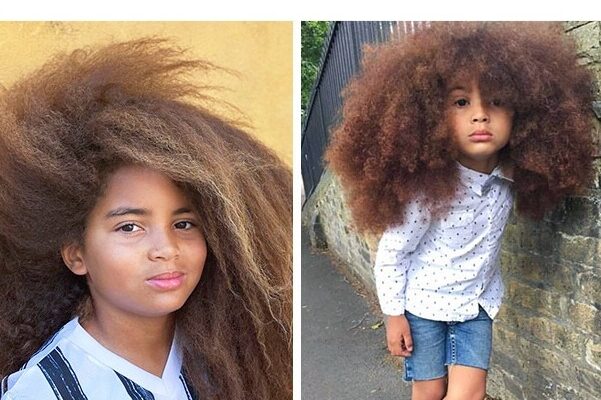The Battle for Self-Expression: A Mother’s Fight for Her Son’s Hair
In a world where individuality often clashes with tradition, 11-year-old Farouk James and his mother, Bonnie, are at the forefront of a unique battle against school hair regulations. Known for his striking, voluminous hair and his presence in the fashion world—with over 250,000 Instagram followers—Farouk is struggling to find a school that will accept him as he is.
Many schools in the UK enforce strict policies regarding hair length, often requiring students to conform to conventional standards.

For Farouk, this means facing the daunting prospect of cutting his natural hair, a request that Bonnie finds deeply unfair. She argues that if Farouk were a girl, such a rule would likely not exist, viewing this as a blatant form of discrimination.
Farouk’s hair has been a defining feature of his identity since before birth, as prenatal scans revealed his full head of hair. He has always cherished his locks, and the idea of trimming them for the sake of conformity causes him distress. Bonnie’s previous experiences with her elder son, who faced similar hair-related challenges, revealed a troubling pattern: many schools maintain outdated regulations that disregard the diversity of students’ backgrounds.

In a bid to address this issue, Bonnie launched a viral campaign to challenge the status quo, rallying support from parents facing similar predicaments—especially those with children who wear dreadlocks or Afro hairstyles. Together, they are forming a movement dubbed “the Mane Generation,” advocating for change in school policies that limit personal expression.
Bonnie’s mission transcends their local community; she envisions a global initiative aimed at redefining the dialogue around hair and identity in educational institutions. “We’re going to fight this until these rules get changed,” she asserts, highlighting the importance of self-expression and personal empowerment.

Long hair, particularly for boys, represents more than just a style choice; it symbolizes individuality and a rejection of societal norms. It serves as a powerful reminder that everyone deserves the right to express themselves authentically, regardless of traditional expectations.
This story offers a vital life lesson: embracing our uniqueness is essential, and fighting for our rights to express who we are can lead to meaningful change. Farouk and Bonnie’s journey illustrates the importance of resilience in the face of conformity, encouraging others to stand up for their individuality. In the end, it’s not just about hair; it’s about identity, self-acceptance, and the courage to challenge societal standards.

